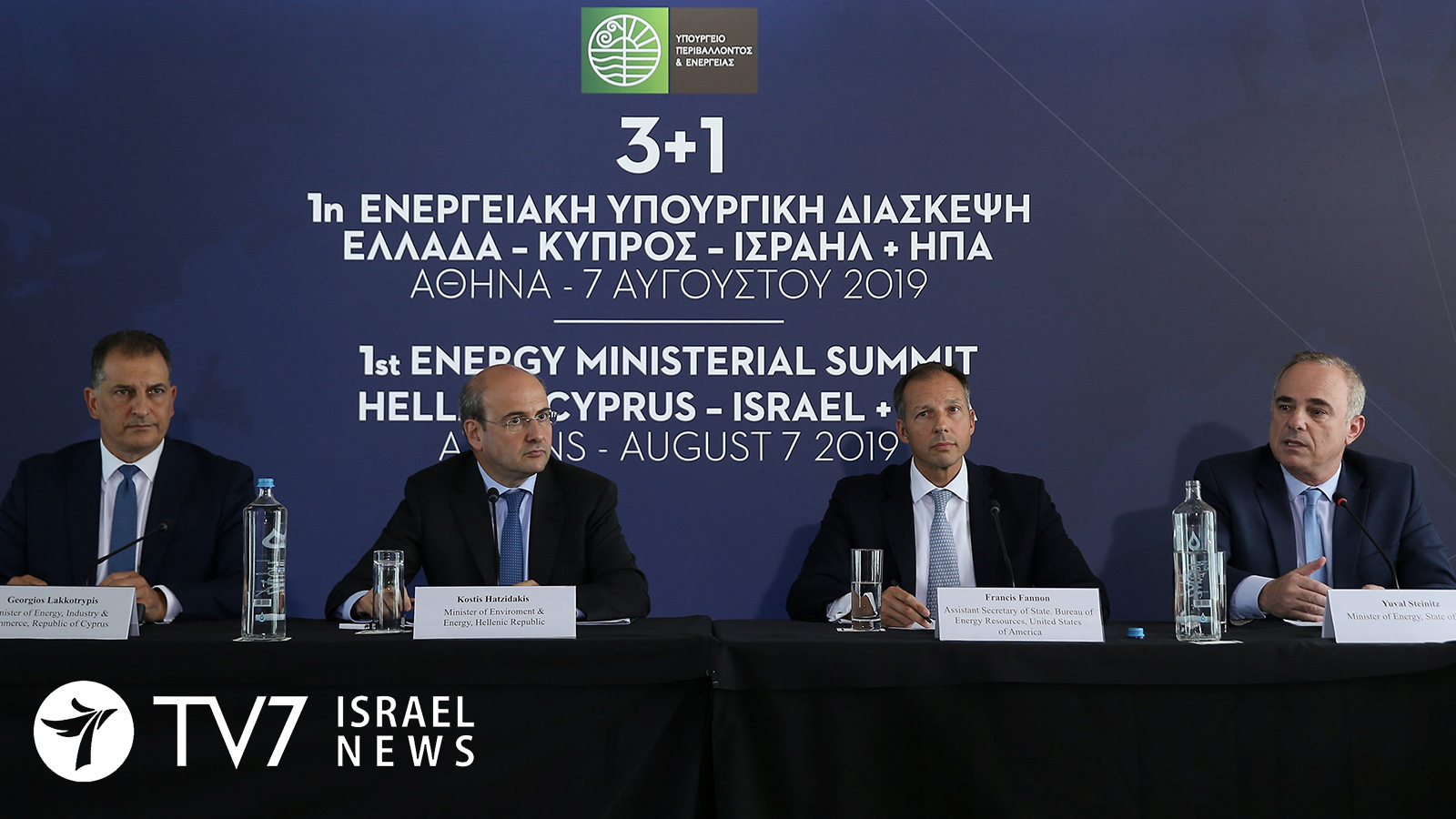The Energy ministers from Israel, Greece and Cyprus, together with the Assistant Secretary for Energy Resources of the United States announced a multilateral agreement to enhance cooperation between the four countries, in order to promote stability in the Eastern Mediterranean region.
Natural gas discoveries in the Eastern Mediterranean in the past decade have rendered the region a viable alternative energy source for Europe, which is heavily reliant on Russian exports. Regional tripartite meetings between Israel and Cyprus, which have made significant offshore gas discoveries, and Greece, which is keen to serve as their hub and point of entry into Europe, have recently been extended to include the United States, amid growing concerns regarding Turkey – which also demands a share of the off-shore discoveries – as well as Lebanon, and possible Russian interference.
During a press conference that follow the meeting, the Greek Energy Minister insisted that the joint efforts to promote cooperation between the four countries in the East Mediterranean is not meant against any specific country, but rather aims to promote stability. According to the Greek Energy Minister “This meeting, the cooperation, the three plus one meeting, is not a meeting against any country, it is a meeting in favor of international law, international treaties. This is a meeting aiming at promoting stability and cooperation in the region.”
Assistant Secretary for Energy Resources Francis Fannon, on his part, insisted that the significant discoveries that were made in joint Israeli – American ventures, could create a bridge to broader political stability and economic progress. “Here we are today, focused on energy in the region, in the Eastern Mediterranean region, where energy can be a bridge to broader political stability and economic progress. A positive force indeed,” Fannon said.
The Cypriot Energy Minister, in his statement, voiced his gratitude over the U.S.-Israeli and Greek support for the right to explore and exploit the natural resources in its territorial waters, amid fears of Turkish interference due to Ankara’s continued occupation of parts of Northern Cyprus. Lakkotrypis stated that he “was very happy to receive the solidarity and full support of my colleagues but also the United States for the rights of Cyprus to explore and exploit its natural resources.”
It is important to note that Ankara has dispatched two drill ships east and west of the island, a move Cyprus says is a violation of international law – a position vehemently rejected by Turkish president Recep Tayyip Erdogan, who warned earlier this week that regional stability is dependent on the preservation of Ankara’s interests, saying: “The stability in Cyprus and eastern Mediterranean is only possible by guarding the rights and interests of Turkey and Turkish Republic of Northern Cyprus. We cannot remain indifferent to the attempts at theft and sabotage that are being carried out under the name of drilling. We will continue to protect both the rights of our country and Turkish Cypriots.”
Despite Cypriot objections, Turkey has already deployed two seismic exploration vessels next to the northern part of the Island and has already drilled to a depth of more than 1710 meters. According to Turkish Energy Minister Fatih Donmez, “Fatih (first Turkish drill ship) continues to drill in the west of the island (Cyprus). Yavuz (second Turkish drill ship) continues its operations in the Karpaz-1 borehole. As of today, we have reached a depth of boring around 1710 meters.”
In an effort to secure its endeavor, and in light of growing tensions between Turkey, Cyprus and Greece, Ankara has deployed a storm boat to provide security to its vessels.
